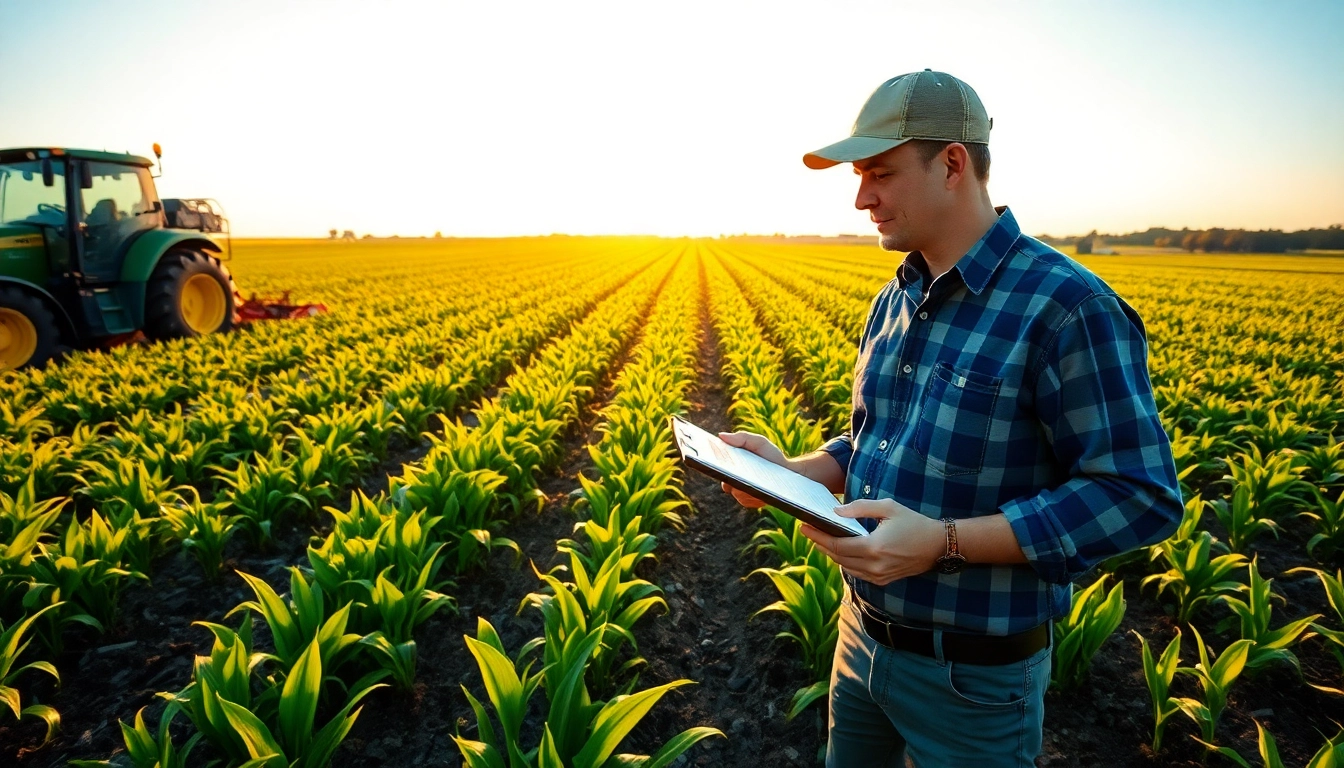
Understanding Agriculture Law: Essentials Every Farmer Should Know
Agriculture is not just a means of sustenance; it is a complex system governed by a distinct body of law known as agriculture law. Farmers and agricultural businesses must navigate through multifaceted regulations that encompass a wide array of issues including land use, environmental compliance, labor relations, and trade agreements. Understanding these legal principles is essential for achieving success in the farming industry and mitigating potential legal challenges. This article aims to break down crucial aspects of agriculture law that every farmer should be aware of, providing insights that help navigate this complex landscape.
What Defines Agriculture Law?
Agriculture law is a specialized area of law that addresses the legal issues surrounding agricultural production, farm ownership, and related enterprises. It encompasses a variety of sub-disciplines such as contract law, environmental law, labor law, and property law, all tailored to the unique needs and challenges of the agricultural sector. Agriculture law addresses issues such as land ownership, water rights, food safety regulations, and subsidies, among others.
The Importance of Compliance in Agriculture Law
Compliance with agriculture law is critical for farmers to ensure the legality of their operations and to protect their businesses from unnecessary legal disputes. Non-compliance can lead to severe fines, loss of permits, or even criminal charges, depending on the nature of the violation. Therefore, farmers must remain informed about federal, state, and local regulations that affect their business.
Regular training and updates on agricultural laws are advisable for farm operators. Investing in legal advice can provide tailored guidance, helping farmers navigate zoning laws, environmental regulations, and labor laws that directly impact their farming practices.
Common Legal Challenges in Agriculture Law
Farmers face numerous legal challenges that require a solid understanding of agriculture law. Common issues include:
- Zoning and land use disputes: Farmers may encounter conflicts regarding land use regulations, which can limit their ability to expand or modify their farming operations.
- Water rights: Access to water for irrigation is often contested, leading to legal challenges over water rights and allocation.
- Labor disputes: Workers’ rights and labor standards can lead to legal issues, especially with the fluctuating nature of the agricultural workforce.
- Environmental compliance: Regulations on pesticide use, waste management, and conservation efforts pose significant challenges for farmers.
Key Areas of Agriculture Law Impacting Farmers
Property Rights and Land Use Regulations
Property rights in agriculture law dictate how land can be owned, used, and transferred. Farmers must be aware of the various land use regulations imposed by local and state authorities, which can impact everything from zoning laws to conservation easements. Understanding the rights associated with their land can prevent costly disputes and maximize the value of their property.
Environmental Regulations and Agriculture Law
Compliance with environmental laws is paramount in agriculture. Farmers must navigate regulations that pertain to water quality, emissions, pesticide and fertilizer application, and sustainable practices. For instance, the Clean Water Act imposes strict guidelines on how agricultural runoff must be managed, while the Endangered Species Act can limit farming practices that affect protected wildlife. Awareness of these laws enhances a farmer’s ability to operate sustainably while avoiding legal repercussions.
Labor Laws Relevant to Agriculture
Labor laws are particularly nuanced in the agricultural sector due to the seasonal nature of farm work and the diverse workforce involved. Farmers must comply with labor regulations regarding wages, hours, safety standards, and worker rights. This includes understanding the Fair Labor Standards Act, which governs minimum wage and overtime pay, as well as Occupational Safety and Health Administration (OSHA) standards that ensure safe working conditions.
Additionally, farmers should be informed about the specific labor laws related to migrant and seasonal workers, as regulations can vary significantly from one state to another.
Navigating Contracts in Agriculture Law
Types of Contracts in Agriculture
Contracts form the backbone of many agricultural transactions. They can include leases for land, sales agreements for crops and livestock, and service contracts with suppliers and processors. Understanding the key elements of agricultural contracts—including terms, conditions, and obligations—is essential for protecting one’s interests and ensuring that all parties meet their legal and ethical responsibilities.
Negotiation Strategies for Agricultural Contracts
Effective negotiation is crucial in family farming and agricultural business partnerships. Farmers should take time to prepare for negotiations by researching market conditions, understanding legal implications, and knowing their thresholds for accepting an agreement. Both parties should aim for a mutually beneficial arrangement, which often involves compromise and clear communication of priorities and expectations.
Managing Breaches in Agriculture Law Agreements
Should a breach occur in an agricultural contract, understanding the legal remedies is critical. Farmers should document all communications and actions related to the breach, as this will support their case should legal action become necessary. Options for managing a breach may include negotiation, mediation, or litigation with legal counsel, depending on the severity of the situation.
The Role of Government Agencies in Agriculture Law
Overview of Key Regulatory Bodies
Various government agencies regulate agriculture law at different levels. At the federal level, the U.S. Department of Agriculture (USDA) plays a crucial role in establishing guidelines that affect farmers nationwide. State departments of agriculture oversee local compliance with both federal and state regulations, helping ensure safe food production and sustainable practices.
Staying Informed on Agriculture Law Changes
The legal landscape in agriculture is continually evolving, with new regulations being introduced at both the state and federal levels. Farmers must actively seek out resources, attend workshops, and join industry organizations to stay updated on significant changes. Embracing technology, such as educational online platforms or legal news websites, can also serve as a vital tool in keeping informed about ongoing legal developments.
Advocacy and Representation in Agriculture Law
Advocacy plays a significant role in agriculture law, with various organizations representing farmers’ interests at local, state, and national levels. Engaging with advocacy groups can assist farmers in navigating their rights and addressing challenges they face, particularly in light of new legislation that could impact their operations.
Legal representation is crucial, especially when engaging in disputes or navigating complex regulations. Hiring attorneys who specialize in agriculture law can provide farmers with insights into best practices and help protect their interests in legal proceedings.
Future Trends in Agriculture Law
Impact of Technology on Agriculture Law
The integration of technology in agriculture is reshaping farming practices and consequently impacting legislation surrounding agriculture law. Innovations such as precision farming and drone usage bring about new legal considerations in areas like data privacy and airspace regulations. As farmers adopt more sophisticated technologies, awareness of relevant regulations will be essential to leverage these advancements while remaining compliant with the law.
Global Changes in Agriculture Law
Globalization is influencing agriculture law, with international trade agreements impacting local farming practices. Changes in regulations affecting imports and exports, alongside international environmental regulations, require farmers to be vigilant about compliance on a broader scale. Farmers engaged in global markets must ensure they meet both domestic and international standards to remain competitive and compliant.
Preparing for the Future of Agriculture Law
As climate change, technology, and global trade continue to evolve, so too will agriculture law. Farmers can prepare for the future by staying educated about trends affecting their industry, engaging policymakers about their challenges and needs, and adapting their practices to promote sustainability and compliance. Proactive measures, such as engaging in environmental stewardship, will not only help ensure legal compliance but also contribute to the long-term viability of agricultural practices.







